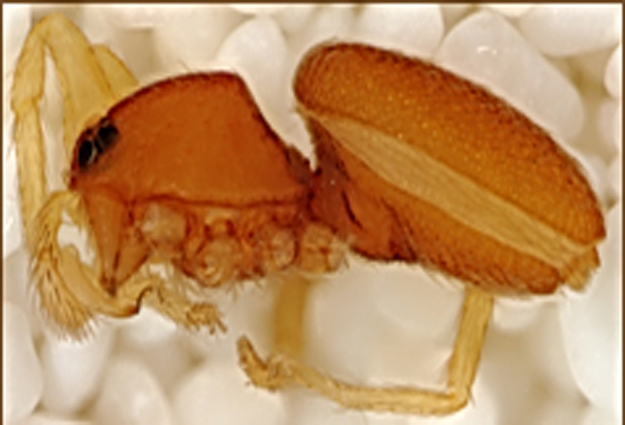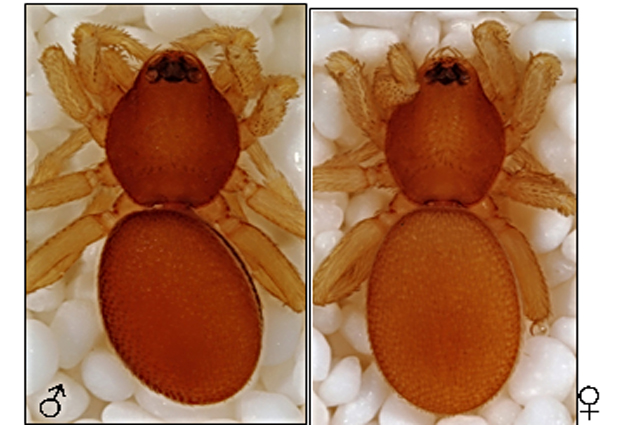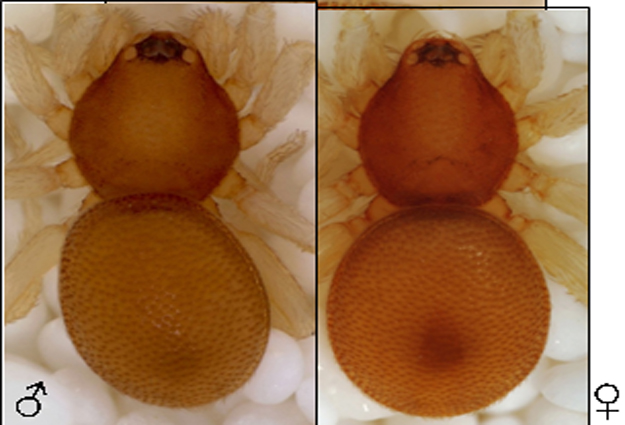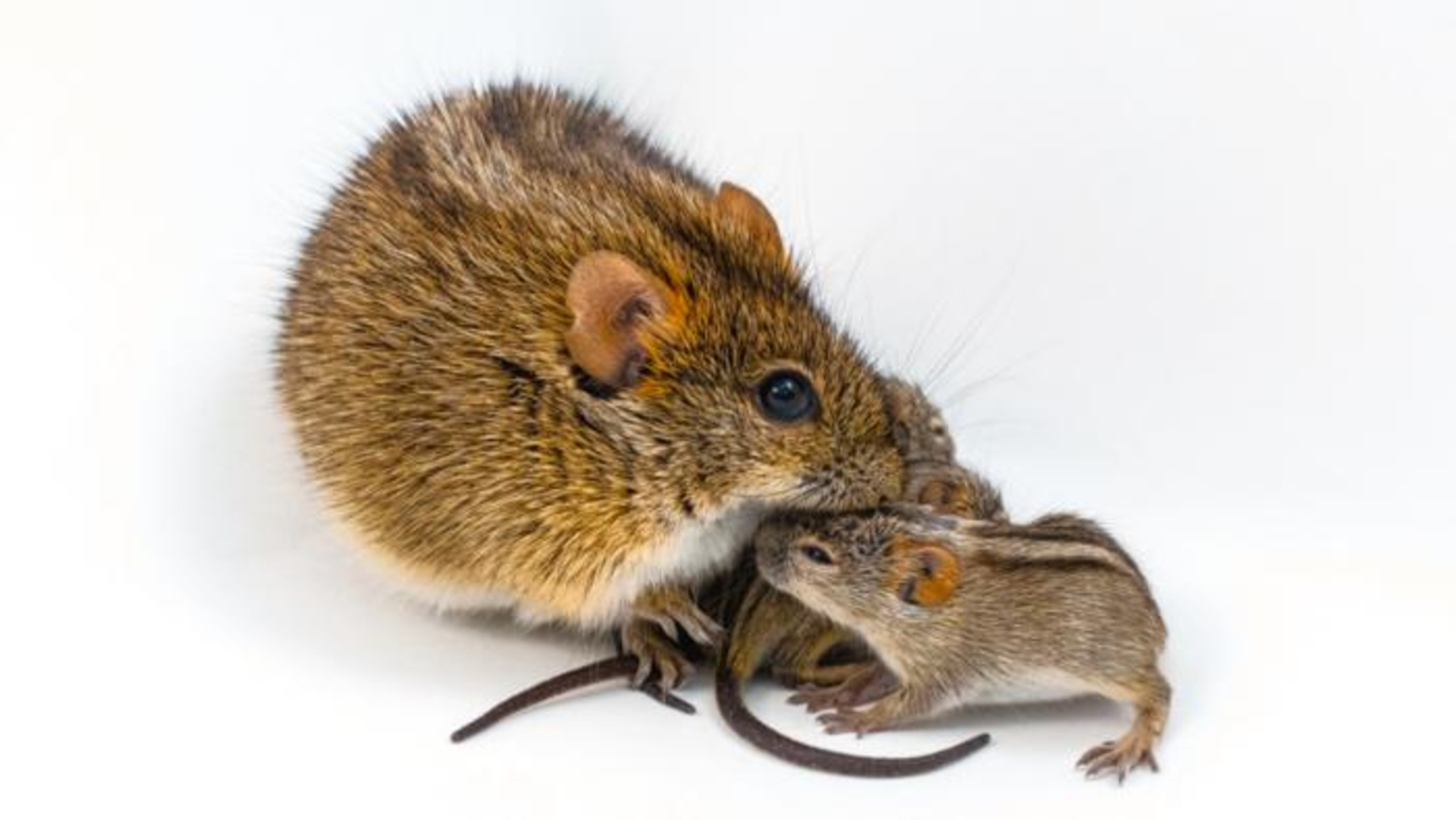5 New Species of 'Shimmering' Goblin Spider Discovered

Get the world’s most fascinating discoveries delivered straight to your inbox.
You are now subscribed
Your newsletter sign-up was successful
Want to add more newsletters?

Delivered Daily
Daily Newsletter
Sign up for the latest discoveries, groundbreaking research and fascinating breakthroughs that impact you and the wider world direct to your inbox.

Once a week
Life's Little Mysteries
Feed your curiosity with an exclusive mystery every week, solved with science and delivered direct to your inbox before it's seen anywhere else.

Once a week
How It Works
Sign up to our free science & technology newsletter for your weekly fix of fascinating articles, quick quizzes, amazing images, and more

Delivered daily
Space.com Newsletter
Breaking space news, the latest updates on rocket launches, skywatching events and more!

Once a month
Watch This Space
Sign up to our monthly entertainment newsletter to keep up with all our coverage of the latest sci-fi and space movies, tv shows, games and books.

Once a week
Night Sky This Week
Discover this week's must-see night sky events, moon phases, and stunning astrophotos. Sign up for our skywatching newsletter and explore the universe with us!
Join the club
Get full access to premium articles, exclusive features and a growing list of member rewards.
Five new species of tiny, shimmering spiders have been discovered in Madagascar, according to a new study.
The new species belong to the family of goblin spiders, which are extremely small arachnids with body lengths ranging from about 0.04 to 0.12 inches (1 to 3 millimeters).
In the study, researchers looked at 326 spider specimens they had previously collected in Madagascar over the course of a few years. After examining the spiders' physical characteristics, such as their genitalia, the investigators determined that the animals should be classified as five species under a new genus that they named Volborattella.
"It is a remarkable discovery — a genus comprising a number of species previously unknown to science, unknown to the world," said study author Charles E. Griswold, curator of arachnology at California Academy of Sciences in San Francisco. [Creepy, Crawly & Incredible: Photos of Spiders]
One of the features that distinguishes the members of the new genus from other goblin spiders is the glistening appearance of their miniscule abdomens.
"These are shimmering goblin spiders; they have a structural color to their body that makes them look almost like they are covered with glitter," Griswold told Live Science. "And no one had ever seen this before, so we realized pretty quickly that these are new to science."
The researchers also identified other unusual characteristics of the arachnids' anatomies, including little hairs that look a bit like feathers, and tiny bumps located between the two major sections of the spiders' bodies, Griswold said.
Get the world’s most fascinating discoveries delivered straight to your inbox.
"These hairs and bumps may interact in some way, maybe to create vibrations so that spiders can communicate — we don't really know how they use the feather hairs and bumps," he said.
The investigators distinguished between the five species of the new genus by examining further details of the animals' genitalia and other physical features, Griswold said.
"A lot of it, though, was based upon very subtle and hard-to-observe distinctions," he said, adding that the researchers used a special scanning electron microscope that allowed them to examine the tiny creatures in detail.
The spider species described in the study are endemic to Madagascar, Griswold said. However, other goblin spiders can be found all over the world. There are probably more than 2,000 species of goblin spiders worldwide, he said.
"Goblin spiders are very rich in species, but they are still relatively little known to science," Griswold said. "So, there is so much to discover there."
Goblin spiders are unusual in that they don't build webs, and they live in the dirt. "They are mostly armor-plated, and they burrow through the soil and humus, kind of like beetles," he said.
The spiders prey on a wide variety of animals, such as soil mites and worms that squiggle through the humus, Griswold said.
"And we think this is one of the reasons there are so many species of goblin spiders," he said. "They have hit upon a lifestyle; they evolved this lifestyle a long time ago that allows them to burrow through the humus, and they are among the only spiders able to do that."
The study was published in the January issue of the journal American Museum Novitates.
Follow Agata Blaszczak-Boxe on Twitter. Follow Live Science @livescience, Facebook & Google+. Originally published on Live Science.
 Live Science Plus
Live Science Plus












